The program is ready!
We are proud to present the speakers and subjects of Beyond Data 2020!
Download brochure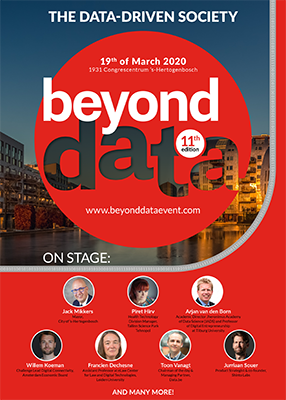
We are proud to present the speakers and subjects of Beyond Data 2020!
Download brochure
If you have a topic or speaker that can not be missed at the program, please contact program manager Sjoerd Jans
Email Call Sjoerd09:15
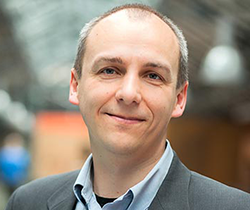 Opening by Chairman Toon Vanagt, Managing Partner Data.be & Chairman Open Knowledge Belgium
Opening by Chairman Toon Vanagt, Managing Partner Data.be & Chairman Open Knowledge Belgium
09:30
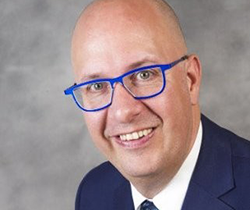 Welcome by Jack Mikkers, Mayor of ‘s-Hertogenbosch
Welcome by Jack Mikkers, Mayor of ‘s-Hertogenbosch
09:45
A responsible digital city requires vision (Tada and AMDEX)
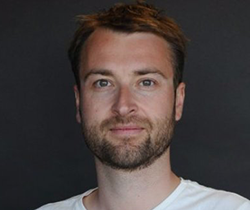 Willem Koeman, Challenge Lead Digital Connectivity, Amsterdam Economic Board
Willem Koeman, Challenge Lead Digital Connectivity, Amsterdam Economic Board
10:15
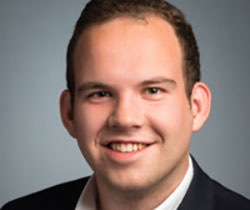
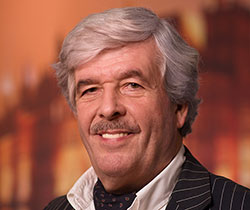 Jeroen Weekers, Projectmanager Municipality of Eersel and Hans Timmerman, Director Fortierra
Jeroen Weekers, Projectmanager Municipality of Eersel and Hans Timmerman, Director Fortierra
10:45
Data governance beyond the technological change
 Francien Dechesne, Assistant Professor at eLaw Center for Law and Digital Technologies, Leiden University
Francien Dechesne, Assistant Professor at eLaw Center for Law and Digital Technologies, Leiden University
11:15
Time for coffee or tea!
11:45 ROUND 1 // 12:15 ROUND 2
During these sessions each table will take place twice. Therefore it is possible to choose two different tables.
1. A Holistic Data Governance Framework
Jochem van den Berg, Open data Consultant and Sara Spaargaren, Consultant Open Government at The Green Land
5. Plan Breda – Digital participation in Breda
Karin Neijenhuis, Communication Advisor, City of Breda
9. Optimal use of traffic data
Marlous Hovestad, Traffic Advisor, The National Datawarehouse for Traffic Information (NDW)
2. Help! My organization wants to become Data-driven!
Mathijs van Niel, Programmanager Working Data-Driven, City of Tilburg
Last year Mathijs was commissioned by the management to ensure that the city of Tilburg becomes a data-driven organization. Mathijs talks frankly about the search of the city for answers on these questions.
![]() 6. Persons with confused behavior
6. Persons with confused behavior
Marit Beijers, Consulant Information management, City of Tilburg
10. Museum of Things for People – Using open data in museum experiences
Pieter-Jan Pauwels, Innovation Lead, Digipolis Gent
3. Data Ethics in practice
Piek Visser-Knijff, Data Ethicist
7. Datacommons 4 smarter public safety
Ben Kokkeler, Professor of Applied Science, Avans Highschool
11. Using sensors for counting passers-by
Paul Geurts, Strategic Advisor Information Management at City of Nijmegen
4. Digital principles for the city sensoring and a sensor register
Ran Haase, Policy Advisor and Artificial Intelligence, VNG
Radboud van der Linden, Policy Advisor Data Management City of Breda
The digitalization of public space is happening at a high speed. BrabantCity likes to engage in a conversation to gather insights of different municipalities.
8. How datasharing helps us create and measure social change
Lisanne Rijnveld, Data Scientist, Xomnia
Social issues extend beyond the boundaries of a single organisation. The Datalab connects organisations in order to solve social issues together, based on data.
Do you believe in the power of cooperation? Do you want to obtain a holistic view of community challenges and contributing to solve social issues? Then we would like to welcome you at our table for a nice conversation.
12. E-car sharing in urban areas
Dorien Lathouwers,Sustainable Mobility Entrepreneur and Founder of GoChargeGo
12:45
Time for sandwiches and drinks!
13:45
How to deliver the potential of the data driven digital solutions in health and wellbeing with collaboration of stakeholders
 Piret Hirv, Health Technology Division Manager, Tallinn Science Park Tehnopol
Piret Hirv, Health Technology Division Manager, Tallinn Science Park Tehnopol
14:15 – 16:15
Choose the sessions that fits your interests.
Chairman: Piek Visser-Knijff, Data Ethicist
During this track, we give examples of data sharing. We also look at the legal challenges. The chairman makes sure that we discuss these challenges in combination with the cases.
14:15 – Case 1
Smartcities: Legal challenges of a data driven governance
Sofia Ranchorda, Professor of Law, University of Groningen
14:45 – Case 2
Privacy by design in practice – keep your data protected while utilizing
cloud technologies
Jurriaan Souer, product Strategist & co-founder of Shintō Labs
Frank Keeris, Projectleader and i-advisor, Municipality of Ede
Chairman: Toon Vanagt, Managing Partner Data.Be
We start this track with a discussion about what the most important topic are to create an open and transparent government. With this in mind, we show 2 cases with a high social relevance.
14:15 – Interactive discussion:
How to deal with open data as a government?
Wilma Haan, Director Open State Foundation
During this session we try to prepare an agenda, so it becomes clear to the public what priorities the various target groups have. This can provide insights about future opportunities. The outcome of this session will be followed up during the Den Bosch Data Week in October.
14:45 – Case 2
A Pilot between the City of Zwolle and Kadaster: Using a digital twin to manage and simulate information about the physical environment
Magdalena Grus, Consultant for Product and Process Innovation & Marcel Broekhaar, Program manager Smart Society, Kadaster
Chairman: Lizann Tjon, Program Manager, Smart Mobility, City of Amsterdam
Mobility is one of the biggest challenges of governments. During this track, we give you insights in the possibilities with data and mobility by presenting innovative cases
14:15 – Case 1
Future of mobility in cities
Lizann Tjon, Program Manager Smart Mobility, City of Amsterdam
14:45 – Case 2
Smart Urban Planning
Michiel Oomen, Strategic Advisor Data and Innovation, City of Eindhoven
Mieke van Schaik, Strategic advisor CIO office, City of Eindhoven
15:15 – Time for coffee or tea!
15:45 – Case 3
Networkgovernance & datacommons 4 public safety, a match made in heaven?
Steven van den Oord,
Researcher at Antwerp Management School
15:45 – Case 3
Energy transition, Data-driven and human-driven
Paul Suijkerbuijk, Open Data Expert, VNG Realisatie
15:45 – Case 3
![]() Road Safety Model Rotterdam. Best Contribution NVC 2019
Road Safety Model Rotterdam. Best Contribution NVC 2019
Roel van Rijthoven, Coordinator Traffic, City of Rotterdam
Sjoerd Braaksma, Data Scientist, City of Rotterdam
During development of the Road Safety Model, the traffic experts of the City of Rotterdam closely collaborated with municipal data scientists. We focus on model development and the most important Goals of Road Safety Model Rotterdam, which are:
16:15
Using data to create healthy working & living environments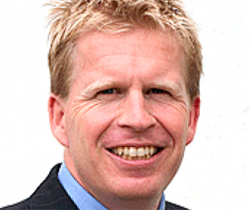 Arjan van den Born, Professor at Jheronimus Academy of Data Science (JADS) and Professor of Digital Entrepreneurship at Tilburg University.
Arjan van den Born, Professor at Jheronimus Academy of Data Science (JADS) and Professor of Digital Entrepreneurship at Tilburg University.
16:45
 Closing Speech by Chairman Toon Vanagt
Closing Speech by Chairman Toon Vanagt
Get your ticket!